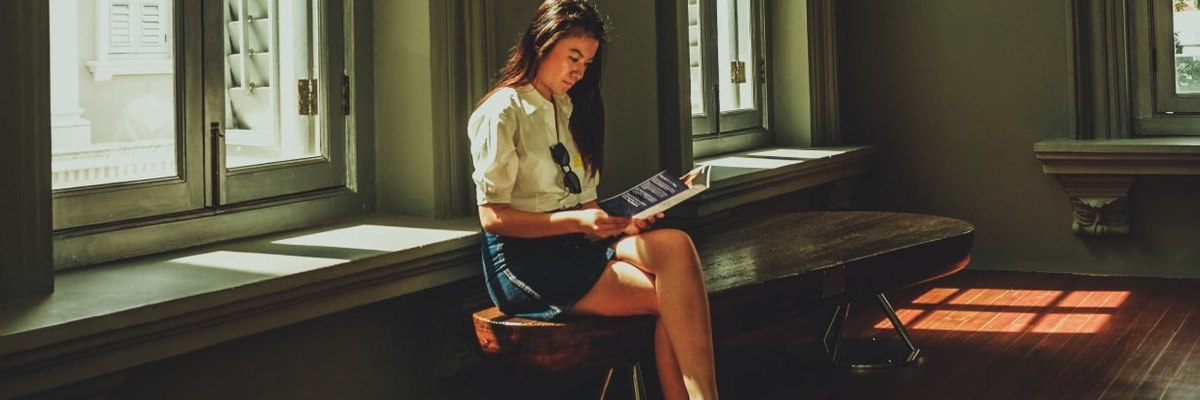My greatest moment on the stage was starring in Merchant of Venice in the school play. I played Portia. Yes, I know she was a woman and I’m not – but it was an all-boys’ school and Portia was, after all, the hero. But I’ve been wondering how long it will be before the play will be regarded as unacceptable by schools and other academic institutions. Shylock is, after all, a Jew and the play is unquestionably anti-Semitic. How would you react if it were to be banned? And how do you feel about “protecting” children and students from offensive or potentially upsetting literature and art?
I raise the question this week because The Times has carried out an investigation which found that universities have started removing books from reading lists to protect students from “challenging” content and have applied trigger warnings to more than 1,000 texts. Ten universities, including three from the Russell Group, have withdrawn books from course study lists, or made them optional, in case they “cause students harm”. The books include the 2017 Pulitzer prizewinning novel “The Underground Railroad”, by Colson Whitehead, which has been "removed permanently" from a course reading list at Essex University because of concerns about graphic depictions of slavery. A university spokesman said the text was still available in the university library and "remains an option for inclusion on future reading lists". But Daina Ramey Berry, an expert on slavery and dean of humanities at the University of California, accused universities of "censorship" because of a “desire to downplay, to sanitise, to soften the history of enslavement."
The classic play “Miss Julie” by August Strindberg has been withdrawn from a module at Sussex University because it includes discussion of suicide. English students at Aberdeen University are also told they can opt out of discussions about Geoffrey Chaucer and medieval writing because the course "sometimes entails engagement with topics that you may find emotionally challenging".
The Times had sent almost 300 freedom of information (FoI) requests to officials at all 140 UK universities asking for details of trigger warnings and texts removed from reading lists because of concerns about content. Essex and Sussex universities admitted removing books from their study lists. It’s believed to be the first time this has happened in Britain. Eight others, including the Russell Group universities Exeter, Glasgow and Warwick, have made texts “optional” to protect students' welfare. There were more than a thousand examples of academics putting “trigger warnings” on mainstream literature used by undergraduates. The examples included some of Britain's most influential authors including Shakespeare, Jane Austen, Charlotte Brontë, Charles Dickens and Agatha Christie. Students at Aberdeen University can opt out of discussions on Chaucer because these have been deemed potentially "emotionally challenging". They are warned that Shakespeare's A Midsummer Night's Dream "contains classism" and The Classic Fairy Tales contain "animal cruelty".
The Times claims that there may well be more instances of lecturers shielding students from challenging literature. It says academics tried to block them from discovering details about changes to their reading lists and “used social media to encourage each other not to comply with requests for information.” It also claims that some universities refused to disclose any information about “harmful” material that had been blacklisted because of the "potentially negative personal impact" on staff.
As for students themselves, the Times quotes some as saying restrictions on freedom of speech on campuses had become "insidious", but they felt they had to "play the game" and express views similar to their lecturers if they were to get good marks.
The reaction to all this from politicians and commentators on the right has been predictably damning. Liz Truss, the foreign secretary and hot favourite to be our next prime minister, said: "Universities should not be mollycoddling students, it patronises them and is not good for wider debate. A good education should be underpinned by a free exchange of speech and ideas not constrained by left-wing groupthink. Real life doesn't come with a content warning. We can't protect people from difficult ideas for their whole lives."
Sir Trevor Phillips, the chairman of the campaigning group Index on Censorship, wrote that withdrawing books to protect students from difficult content, such as descriptions of slavery, was "patronising and profoundly racist". It is, he said, “part of a wider wave of censorship on British campuses". He writes: “Those on campuses who shriek about "micro-aggressions" could do a little less preaching and a little more reading if they want their students to understand what "white privilege" really means.
“University dons are never slow to point the finger at others, past and present, for racial transgressions. But the cancellation of black lives in order to make other people feel comfortable about their own past tells us what really matters to these self-styled anti-racists and their own refined sensibilities. This is a textbook case of institutional racism. It is shameful.
“It is also part of a wider wave of censorship on British campuses. Students report that they worry about offering alternative views in tutorials. The suggestion that reading about suicide is a prelude to the act is offensive to any family who has ever had to deal with the consequences of serious teenage mental illness. Mind-numbingly dull as he can be, it takes a lot more than a dose of August Strindberg to induce the urge to self-harm. The trigger warnings, book removals and cancellations are just a disguised campaign of thought control.”
Commentators on the left have been critical too. Catherine Bennett of The Observer concedes that “Many students must be stunned, even as they expect it, by the racism with which much of the western literary canon is infected. It’s still a shock, going back to Oliver Twist, to see Dickens interspersing passages of deep fellow feeling with those in which Fagin is repeatedly “the Jew”.
She points out that this generation is not the first to recoil at some of the more racist elements in literature . A Jewish mother wrote to Dickens in 1863, she says, inviting him to “atone for a great wrong”. History does not record how Dickens responded.
Trigger warnings are intended to protect students from content that might upset them or positively harm them, but Bennett claims there is growing evidence that they simply don’t work. In short, they are pointless. Here’s how she puts it: “When theatres and universities defend them as standard practice they don’t merely lack proof of efficacy, or any coherent system of application, they ignore academic findings that trigger warnings have no effect on anxiety and do not alleviate negative emotional reactions. Warnings may even, in the case of trauma survivors, make things worse.” She quotes one study which claims there is substantial evidence that trigger warnings “reinforce survivors’ view of their trauma as central to their identity.” And she adds: “So long as intentionally disturbing literature is understood as a threat to student wellbeing, it looks as if academics need to find some other therapeutic approach.”
But those who defend the use of trigger warnings in universities or even schools make the point that it is often the students themselves who call for them. One of the universities approached for the Times investigation said its content warnings policy had been developed with student representatives and enabled staff "to explore controversial topics that could otherwise be difficult to address in an inclusive and supportive environment".
Others say there is a wider point to be made in this debate. Sir Trevor himself acknowledges that curriculums need to be reviewed all the time or “we'd all still be reading Plutarch's Parallel Lives in Greek.” True enough, they say, but this is about more than curriculums and the sensitivities of some highly privileged, mostly white, young people. It is about those who know from personal experience what it’s like to be treated as inferior because of the colour of your skin. Never mind Plutarch, they say, let’s talk about the Black and White Minstrels Show and remember that it’s not so very long ago that the nation sat down on a Saturday night and enjoyed watching white men with painted faces pretending to be black for the amusement of a largely white audience. Or let’s talk about a time – also well within living memory – when the n-word was used routinely and seaside landladies were allowed to welcome guests... just so long as they were white.
So where do you stand in all this? Do you think students should be protected from books or plays or anything else that might upset them? Or do you think they are perfectly capable of making that judgement themselves? Do you think the use of trigger warnings helps or harms the cause of racial equality? Where would you draw the line? Is there anything you would ban and if so ... what is it?







